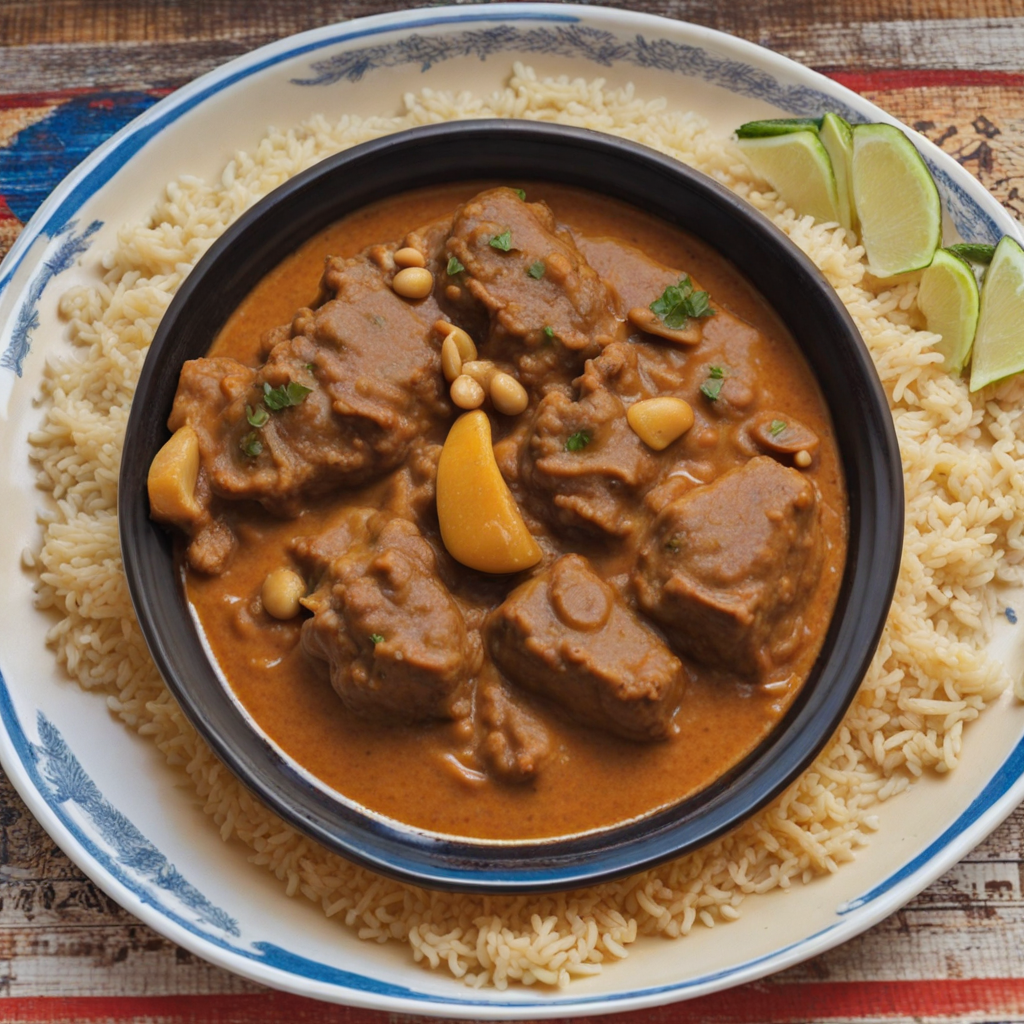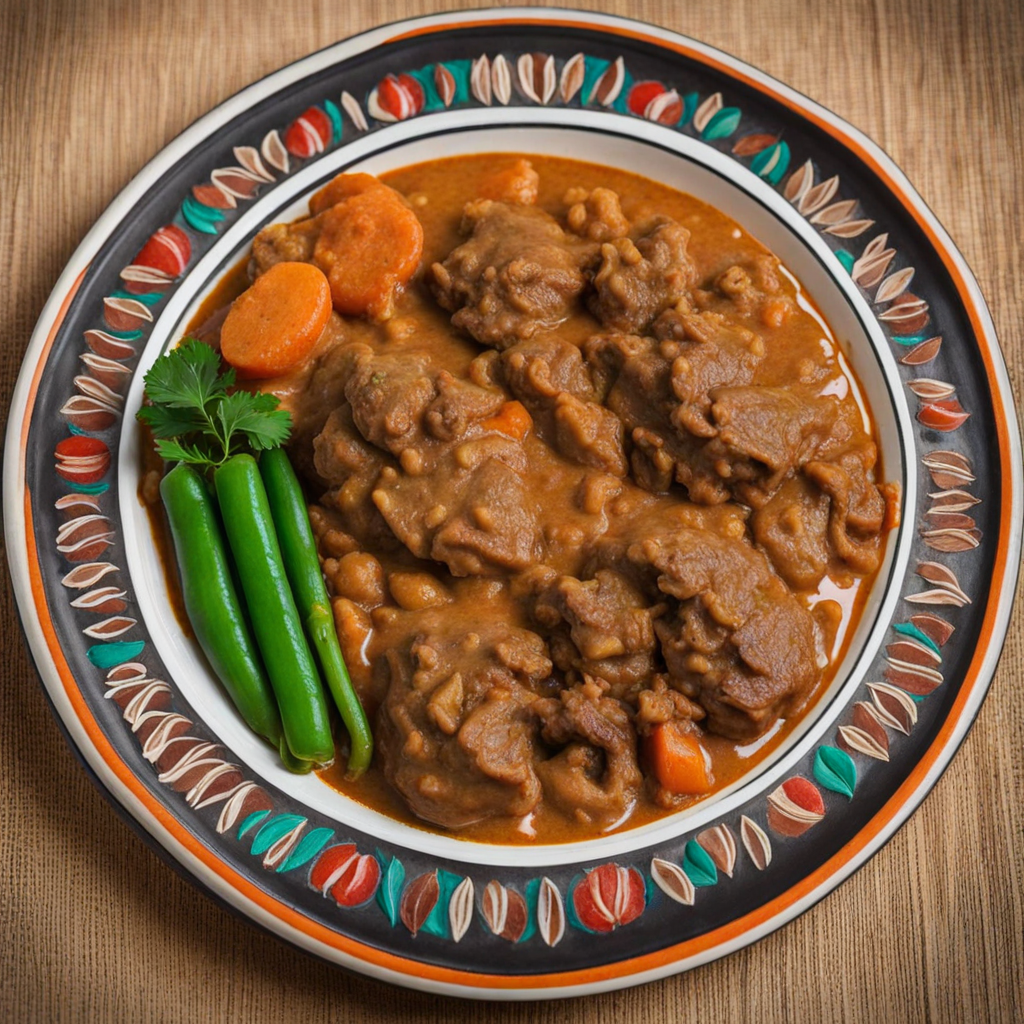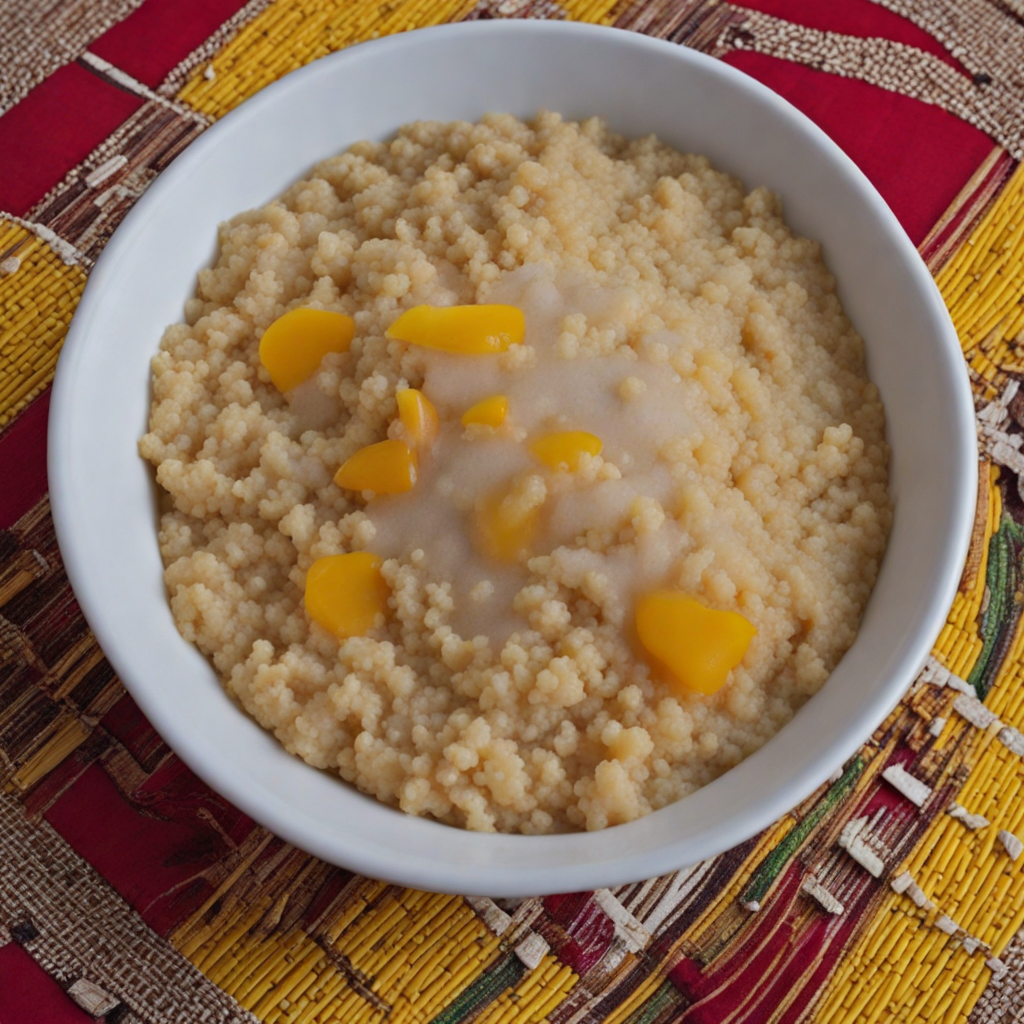Domoda
Domoda is a traditional Senegalese dish that captivates the palate with its rich, savory flavors and hearty ingredients. At its core, Domoda is a groundnut stew, featuring a luscious peanut sauce that envelops a variety of ingredients, typically including meat, such as chicken or beef, and assorted vegetables like sweet potatoes, carrots, and greens. The main attraction is the smooth and creamy peanut butter, which adds depth and a nutty sweetness to the dish, creating a comforting and satisfying experience with every bite. One of the unique aspects of Domoda is its versatility; it can be easily adapted to accommodate different dietary preferences. For a vegetarian version, one can simply replace the meat with an array of vegetables or tofu, allowing the peanut sauce to shine. The dish is often served with rice or millet, which acts as a perfect accompaniment, soaking up the flavorful sauce and balancing the richness of the peanuts, making each mouthful a delightful combination of textures and tastes. The preparation of Domoda is a communal experience, bringing families and friends together to share in the cooking process. The aroma of simmering ingredients fills the air, inviting everyone to gather around. As you savor this dish, you'll find that each spoonful not only delivers a burst of flavor but also tells a story of Senegalese culture and hospitality, making Domoda not just a meal, but a warm embrace of culinary tradition.
How It Became This Dish
The Engaging History of Domoda: Senegal's Culinary Treasure #### Origins of Domoda Domoda, a traditional Senegalese dish, is a rich peanut stew that embodies the heart of West African cuisine. Its origins can be traced back to the Senegambian region, where peanuts, or groundnuts, were first cultivated and integrated into local diets. The introduction of peanuts to Africa is attributed to the transatlantic slave trade, which facilitated the movement of crops and culinary practices across continents. Originally from South America, peanuts thrived in Senegal's warm climate, becoming a staple ingredient in numerous dishes. The name "Domoda" itself highlights the dish’s intrinsic connection to the local language and culture. In the Wolof language, the term is derived from "dom," meaning “to stew,” and “oda,” referring to the groundnut or peanut. This etymology underscores the significance of peanuts in the dish and reflects the agricultural practices of the region. #### Cultural Significance Domoda is more than just a meal; it represents a communal experience and cultural identity. In Senegal, food is deeply intertwined with social gatherings, family time, and celebrations. Domoda is often served during important occasions, such as weddings, religious festivals, and family reunions, where it fosters a sense of togetherness. The dish is typically accompanied by rice or millet, staples in Senegalese cuisine, and is eaten by hand, a practice that reinforces communal bonds. The preparation of Domoda is often a family affair, with multiple generations participating in the cooking process. Elders impart their culinary wisdom to younger family members, ensuring the preservation of traditional recipes and cooking techniques. This intergenerational transfer of knowledge not only enhances the flavor of the dish but also strengthens familial ties, as stories and experiences are shared around the cooking pot. #### Ingredients and Preparation At its core, Domoda is a simple yet flavorful dish made primarily from peanuts, meat (often chicken or lamb), and a variety of vegetables. The base of the stew is created by grinding roasted peanuts into a creamy paste, which forms the heart of the dish. This paste is then mixed with water and cooked alongside the meat, allowing the flavors to meld together. Vegetables such as sweet potatoes, carrots, and okra are commonly added, contributing both nutrition and texture. The dish is often seasoned with spices like onions, garlic, and chili peppers, providing a delightful balance of heat and richness. The result is a hearty stew that is both comforting and satisfying. The versatility of Domoda allows for regional variations and personal adaptations. Some families may choose to add fish or different vegetables based on seasonal availability and personal preferences, illustrating the adaptability of the dish to local ingredients and tastes. #### Evolution Over Time Over the years, Domoda has evolved, influenced by historical events, migration patterns, and globalization. The French colonial period in Senegal brought about changes in culinary practices, as new ingredients and cooking techniques were introduced. However, despite these influences, the essence of Domoda has remained intact, preserving its traditional roots. In contemporary Senegal, Domoda continues to be a beloved dish, embraced by both rural and urban populations. The rise of urbanization has led to a fusion of traditional and modern culinary practices. Chefs and home cooks alike are experimenting with Domoda, incorporating international flavors and techniques while maintaining the dish's core elements. This evolution reflects the dynamic nature of Senegalese cuisine, which is constantly adapting yet deeply grounded in its cultural heritage. Moreover, the global interest in African cuisine has brought Domoda to the international stage. As Senegalese diaspora communities flourish around the world, they carry their culinary traditions with them, introducing Domoda to a wider audience. Restaurants and food festivals celebrating West African cuisine have emerged in various cities, showcasing the rich flavors and cultural significance of dishes like Domoda. #### Domoda in Modern Times In the modern culinary landscape, Domoda is not just a dish; it symbolizes resilience and cultural pride. The growing movement towards sustainable and locally sourced ingredients has reignited interest in traditional dishes, with Domoda at the forefront. Many chefs are revisiting the importance of using locally grown peanuts and vegetables, supporting local farmers and promoting food sovereignty. Additionally, the rise of social media has allowed home cooks and chefs to share their interpretations of Domoda, creating a vibrant online community that celebrates Senegalese culinary heritage. Cooking demonstrations, recipe sharing, and discussions about the cultural significance of the dish have contributed to a renewed appreciation for Domoda among younger generations and food enthusiasts around the globe. #### Conclusion The history of Domoda is a testament to the rich tapestry of Senegalese culture and cuisine. From its origins rooted in the agricultural practices of the Senegambian region to its contemporary adaptations, Domoda remains a symbol of community, tradition, and resilience. As it continues to evolve and reach new audiences, the dish stands as a reminder of the importance of food in shaping identity and fostering connections across generations and cultures. In a world increasingly characterized by globalization and rapid change, Domoda offers a taste of history, a connection to the past, and a celebration of the flavors that define Senegal. It invites all who partake in it to savor not just a meal but a rich cultural narrative that continues to unfold. Whether enjoyed at a family gathering, a festive celebration, or a restaurant halfway across the globe, Domoda is a dish that carries the warmth of Senegalese hospitality and the richness of its culinary heritage.
You may like
Discover local flavors from Senegal







